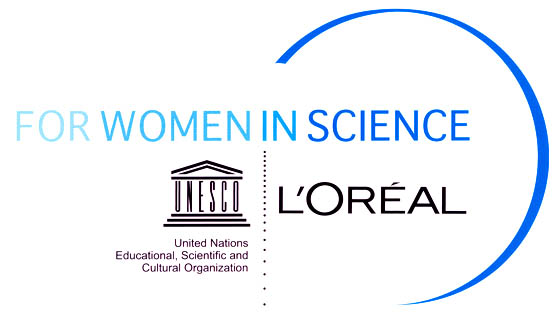Cheyenne Johnson,
Staff Writer
Photo from acelebrationofwomen.org
A University of California Santa Barbara graduate student has won the UNESCO-L’Oréal Fellowship for Young Women in Life Sciences for 2011. The fellowship awards Alejandra Jaramillo $40,000 over two years to continue with her research on understanding parasite-host dynamics within fish populations, research that has the potential to shed light on how parasites affect the behavior of humans.
“My research focuses on understanding how parasites mediate selection on the immune system of fish,” said Jaramillo. “I hope my research helps us improve our understanding of parasite-host dynamics, as well as gain some new insights into the ecology of diseases.”
The UNESCO-L’Oréal Fellowship is awarded to 15 women researchers in the life sciences at the doctoral or postdoctoral level every year and is used to support their research and enhance their expertise. The fellowships, awarded to three women from one of five regions: Africa, Arab States; Asia & the Pacific; Europe & North America; and Latin America & the Caribbean require that the women nominated have research that has been accepted by a prestigious institution outside of their home country. By doing this, the fellowship aims to create international relations between women in these fields and encourage their advancement worldwide.
“L’Oréal and UNESCO have done an excellent job of creating a worldwide network of women scientists,” said Jaramillo. “This type of community is especially important for young women in science as it promotes collaborations and provides important opportunities for mentorship.”
The lack of women involvement in science and mathematics fields stand as one of the main motivators for the fellowship and still remains a problem in the modern world. It’s estimated that only 17 percent of chemical engineers and 22 percent of environmental scientists are women and, according to a study by the Center for Work-Life Policy, it’s becoming more common for women to completely abandon these careers later on in life. This is happening even as the gender gap in these fields is thinning.
A study on the status of women faculty in science reported by the Massachusetts Institute of Technology found that the bias against women scientists still exists even in prestigious universities.
“Each generation of young women, including those who are currently senior faculty, began by believing that gender discrimination was ‘solved’ in the previous generation and would not touch them,” said the report. “Gradually however, their eyes were opened to the realization that the playing field is not level after all, and that they had paid a high price both personally and professionally as a result.”
The UNESCO-L’Oréal Fellowship and other groups throughout the country hope to reduce the discrimination and encourage women to enter and succeed in science and mathematics departments. Women like Jaramillo are recognized because of their dedication and contributions to their fields. Armand Kuris, professor of zoology, ecology, evolution and marine biology at UCSB, believes Jaramillo has the potential to discover something amazing.
“Alejandra has developed a deeply intellectual thesis project, melding immunology and ecology to study the impact of parasites on the behavior and survival of fishes. This has implications for human parasites, some of which also modify our behaviors,” said Kuris. “She is also an outstanding teacher and is as adept in the field as she is in the lab. Also, she already is among the authors of a high profile paper on the ecology of parasites. In other words, she is a very well-rounded young scientist who is a rapidly rising star.”
The significance of the award and the joy of receiving it has not been lost on Jaramillo even as she continues her research.
“It was a great honor to receive this award,” said Jaramillo. “I was very excited and proud to be the first Panamanian scientist to receive it.”

















